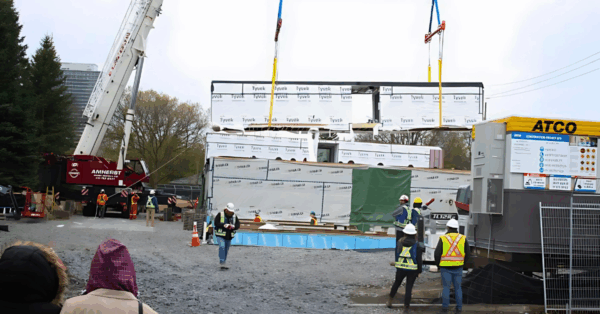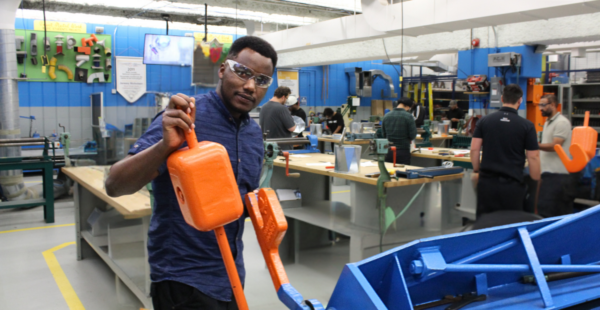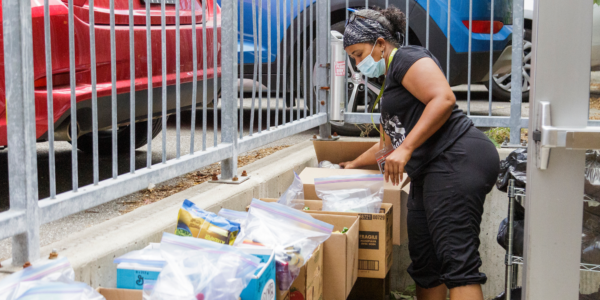It’s been two years since the start of the COVID-19 pandemic.
In that time, WoodGreen Frontline Staff have worked tirelessly with a dedication to serving our community that is to be admired and recognized.
That’s why all this month we are featuring profiles of WoodGreen frontline workers.
Please help us acknowledge their hard work by sharing their stories.
The big job of caring for young children during the pandemic
Tiffany Belgrave, Early Childhood Educator
Sometimes the littlest people ask the biggest questions. At the start of the pandemic, the children in Tiffany Belgrave’s care at Morse Street Child Care were nervous. What is a virus? Why do we need masks? Why can’t we hug?
But Belgrave has been a Registered Early Childhood Educator (RECE) at WoodGreen for 13 years, so she knows a thing or two about kids.
“It’s our job to make the children feel safe, and so we did,” says Belgrave, who continued to work in-person on the front line throughout the course of the pandemic, just not always in her regular job. Three times over the past two years the centres were forced to close when COVID-19 regulations closed schools and child care. From March to July of 2020, Belgrave’s classroom was silent. The little voices that asked the big questions weren’t around.
“We missed them. We missed their families,” says Belgrave, “You get to know them all and care about them so much.”
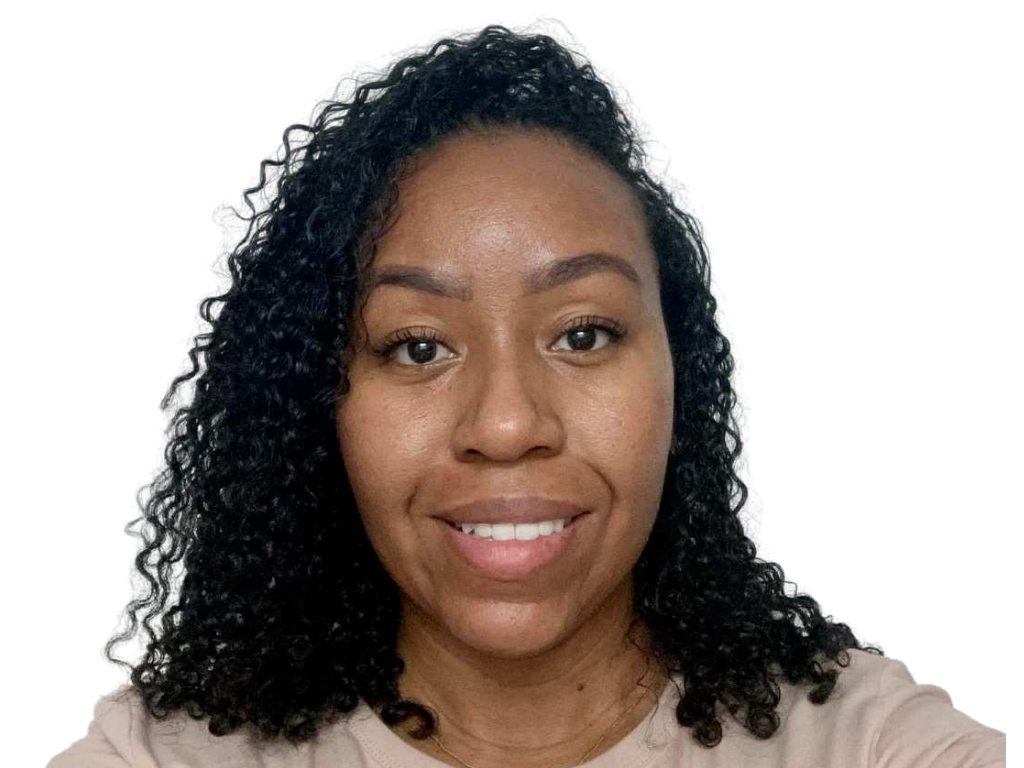
Working provided routine and purpose
The one thing Belgrave didn’t have to miss, however, was a paycheque. “Kudos to WoodGreen, they kept us all working in the organization in some capacity,” says Belgrave, noting that staff were moved around to wherever they were needed. “At least that was one thing we didn’t have to worry about.”
WoodGreen has seven child care centres where children learn and play from the tiniest of infants through to age 12.
Belgrave says that while most people she knew were at home she was glad not to be confined to her couch.
“I liked having a routine to go to every day. It gave me a purpose. It felt like I was at least doing something.”
Each time restrictions were relaxed, the child care centres re-opened with a whole new set of protocols for staff to learn and follow. That also meant making sure the children followed the changing rules and regulations. She admits convincing four-year-old and five-year-old children to keep a mask on was no easy task.
“If the last two years have taught us anything it is that we are more resilient than we knew. The adults and the kids,” she says with a laugh.
Supporting other frontline workers
Belgrave points out that the ECEs also felt a duty to their community to care for the children during this time so that those kids’ parents/guardians, many of whom were also essential workers, could keep Toronto moving.
“Yes, we put ourselves and our health on the line, but they are trusting me with their children, and that is an incredible honour,” she says.
Looking forward into 2022 Belgrave says she has gained a new appreciation for the role and responsibility that she has for shaping young minds. But she also has a newfound gratitude for her job and her coworkers, who she says were a great support to one another during a period of unprecedented change.
Many of the children Belgrave cared for may never remember the pandemic or everything their ECE’s did to give them as much of a sense of normalcy as possible. But if they do ask, Belgrave will likely tell them she was just doing what she loves.
Emotional support by frontline PSWs critical during pandemic
Amoy Toyloy, Personal Support Worker
How many people can say that they truly love what they do? Frontline worker Amoy Toyloy can, and with such conviction that when she says she’s been doing it for 28 years it makes absolute sense.
“I love taking care of seniors,“ says Toyloy, who is a PSW (Personal Support Worker) with WoodGreen Community Services.
“I love to hear ‘thank you’ and ‘I love you’, after the end of my hour.”
Toyloy first began working as a PSW in 1994 and has spent the last decade dedicated to the care of seniors through WoodGreen. She helps clients with whatever they need; bathing, preparing their meals, doing their laundry as well as some light housekeeping. But it was the less tangible aspect of her job, namely providing companionship, that became more important over the last two years than anyone could have imagined.
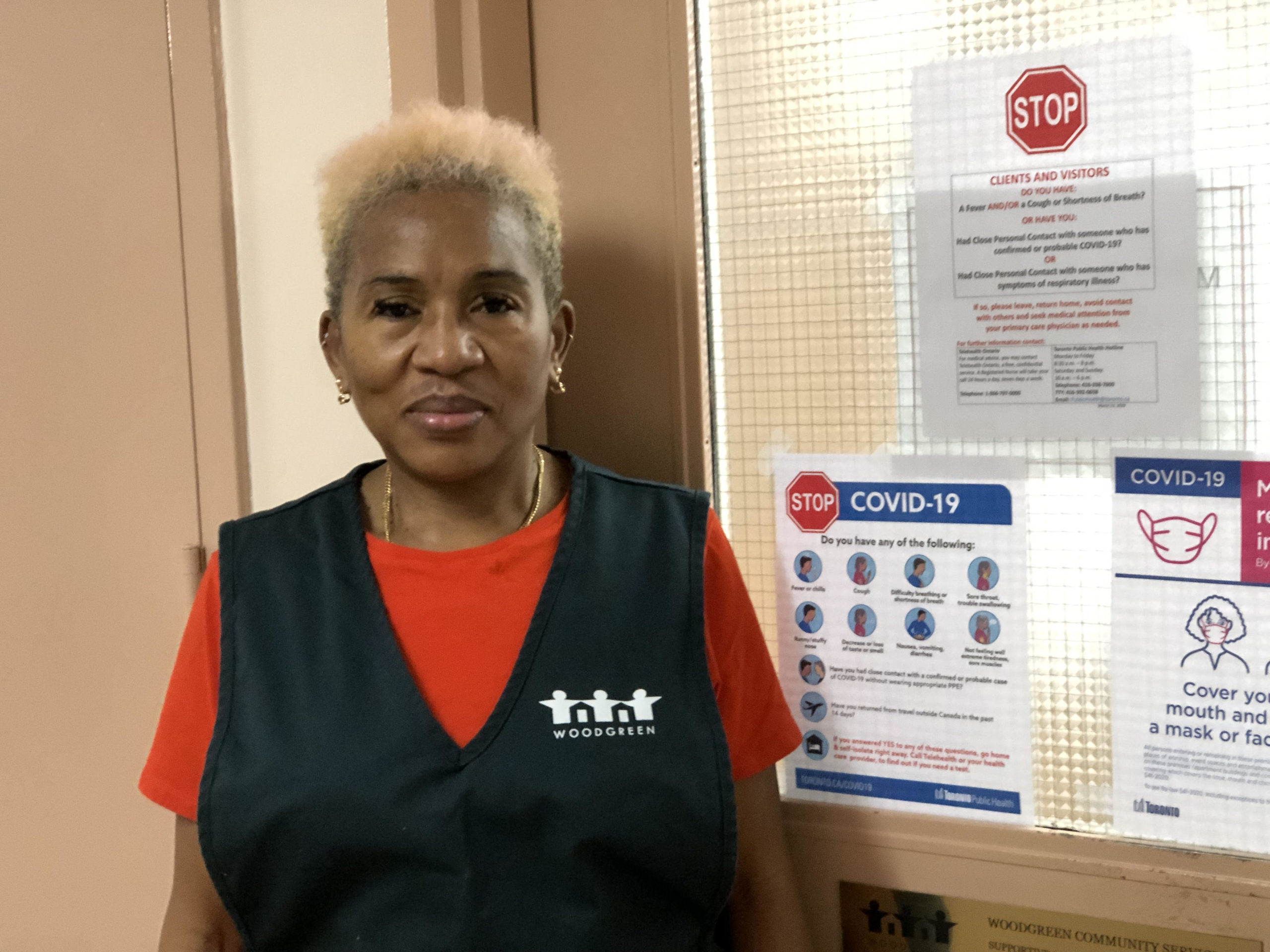
Clients appreciate safety measures
As the pandemic took hold in March 2020 fear also gripped many of Toyloy’s elderly clients.
“They were scared,” she says, “they’re vulnerable and they easily get sick.”
Most did not dare leave their homes or welcome visitors. Toyloy saw it as her responsibility to reassure those in her care that she would support and protect them by always wearing her full PPE (personal protective equipment). She says patients were relieved she took their safety so seriously, and they were always so happy to see her walk through the door.
“Some of the clients hadn't seen their parents or their loved ones,” says Toyloy.
“We are the only person they see, day in and day out. They see no one else. We hear all the cries. But we still support them.”
“I didn’t take a single day off’
Beyond the physical demands of her job, it was the increasingly vital emotional element that Toyloy says presented the greatest challenge. She says some days were harder than others, but that she did the best she could, because staying home was something she was never willing to do.
“I made it to work every single day,” she says, with a matter-of-factness that assumes such dedication is the norm. “I didn’t take a single day off. I worked right through the pandemic.”
Despite nearly three decades of experience as a PSW, Toyloy says the last two years have changed her perspective on a few things. First, she wishes that everyone could “walk in our shoes for one minute” and see the commitment frontline workers have made to care for others and the passion that is required to see that through.
Secondly, she is determined to stay safe and healthy so she can embrace every day to the fullest.
“COVID took away a lot of my friends,” she adds. “I look at life different now...because you never know what’s going to happen or what tomorrow is going to look like.”
Where the frontline meets the road for WoodGreen’s Steven Li
Steven Li, Transportation Driver
There are few people who know their way around Toronto like frontline worker Steven Li.
For almost 19 years he’s been driving people wherever they need to go.
Every day Li picks up seniors at their home and brings them to medical appointments anywhere in the city. He’s a driver for WoodGreen Services and has been working nonstop on the frontline since the day the pandemic began. Unlike millions of Canadians, Li’s job didn’t transition to online.
“We were never in any office. We are drivers. We can’t work from home.”
That doesn’t mean the pandemic didn’t bring changes, however. Initially, few doctors were seeing patients in person, so Li switched over to delivering Meals on Wheels through WoodGreen.
After a few months, as hospitals and clinics began reopening he switched back to taking clients to medical appointments.
“That was a real challenge, everybody was scared. I was scared, too,” says Li. Drivers all wore masks, shields and gloves and were told to protect themselves and their clients. That meant after every appointment drivers had to disinfect their entire vehicle before they could pick up the next client and head out again.
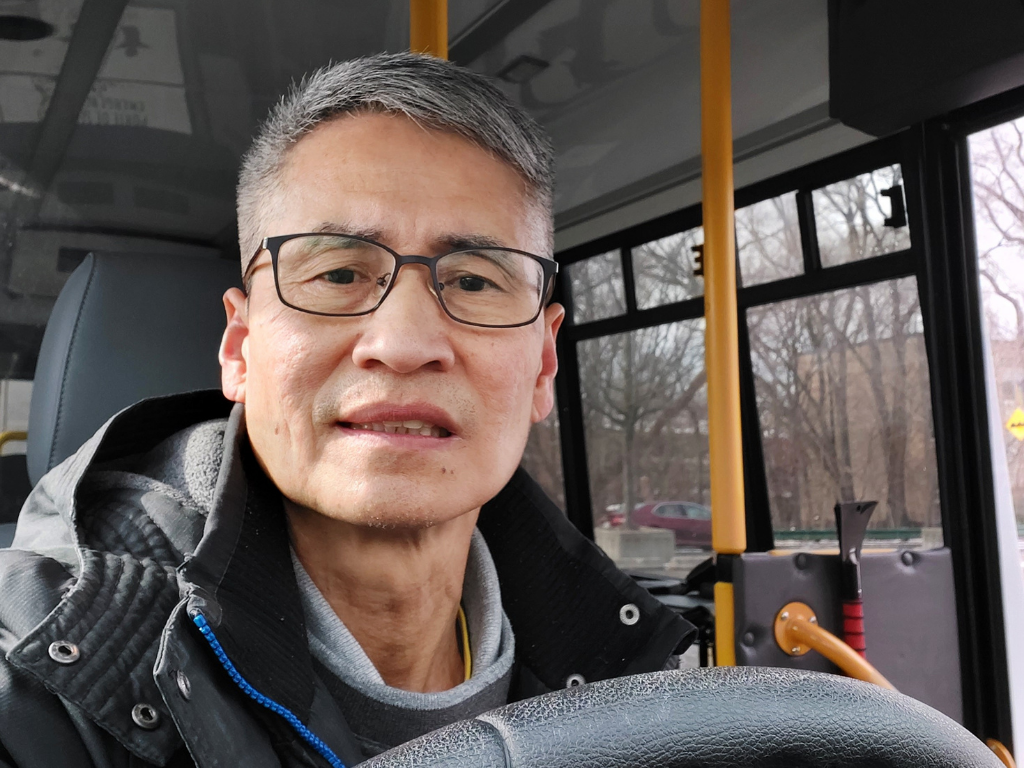
Safe, human contact critical for senior clients
Safety was important for Li because he knew vulnerable people relied on him. “Because it is seniors, if we don’t provide them these services, they might not get to see their doctor.”
While Li was providing a transportation service, he also knew how important human contact was for his clients, many of whom he drives three to four times a week.
“We were often one of the only people these clients saw,” says Li.
Silver lining on two years of pandemic clouds
Now in the third year of the pandemic Li is optimistic about what is ahead for 2022 and beyond. “If [COVID] comes again we will know better how it spreads and how to protect ourselves.”
Li is determined to focus on the positive and says the efforts of frontline workers he saw during the pandemic showed him what great heart there is in the city of Toronto. Still, he’d like one to keep one thing from the past two years of the pandemic:
“March, April, May of 2020, there was no traffic! The streets were empty! It was so fast to get from A to B,” says Li with a laugh.
Unique frontline pandemic role turns opposition to opportunity
Vishaal Beharry, Pandemic Response Officer
Vishaal Beharry is a vanguard, of sorts, working in a frontline job that two years ago simply did not exist and no-one thought would ever be necessary.
Beharry is a pandemic response officer at WoodGreen Community Services. His job is new and a bit fluid but ranges from distributing PPE (masks, visors, gloves) to handing out test kits and hosting vaccine clinics.
A key part of his role, however, is working with community members on whom the pandemic is having a direct, and often devastating, impact. Some are facing food insecurity due to loss of work or having had to self-isolate. Beharry helps them navigate the labyrinth of government assistance programs to access funds earmarked for those struggling due to the pandemic.
Beharry came to WoodGreen in 2021 as a volunteer community health ambassador determined to make a difference in his community. By the end of that year, as Omicron surged, he took on the frontline staff role of Community Health Promotion Worker, focused on pandemic-related needs.
Immediately it became clear to Beharry the importance of such a role and the impact it can have in helping people understand both the risks of COVID and their rights during this time.
“You get a really strong sense as to how it is that you are able to help community members. There are real tangible results.”
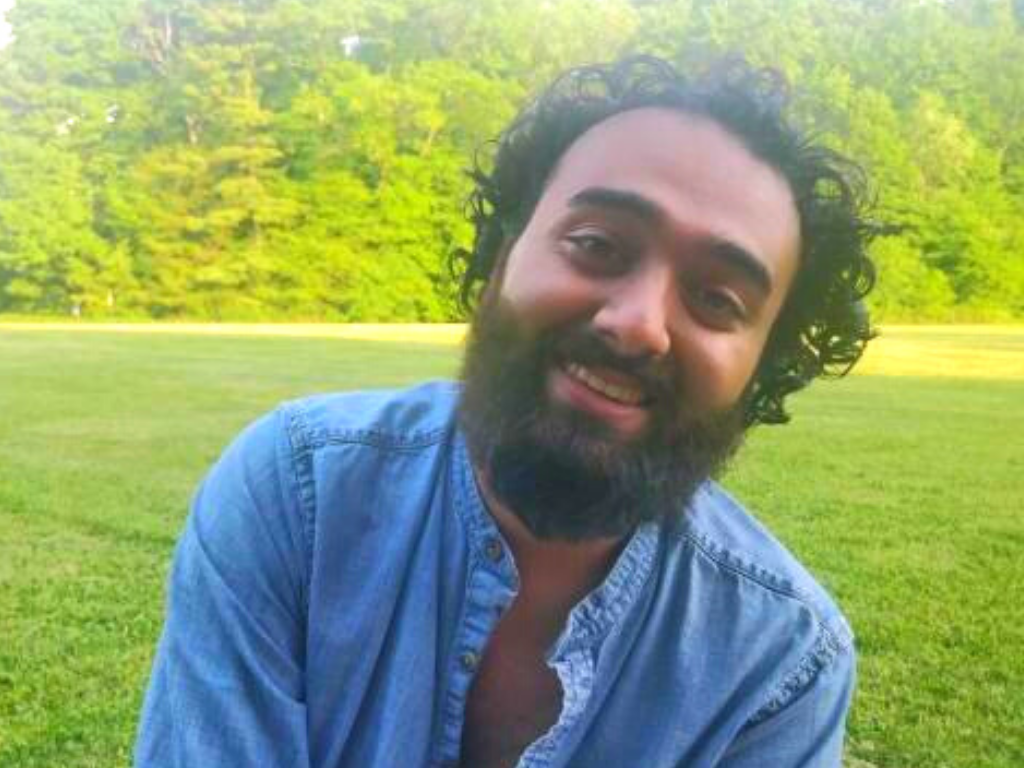
Seeing the real impact of the pandemic, up close
Beharry sees up close how the pandemic has directly and disproportionately impacted some groups more than others, and that can be a lot to deal with on a personal level. He says those people who were able to easily transition their life and employment to working from home often did not face as acute a need for help as those who did not have the privilege to do so.
“It’s made me acutely aware as to what the actual impacts of the pandemic look like,” he says. Beharry notes that while his job was born out of the pandemic, his work responds to a lot of societal issues that existed before the pandemic, and will continue to exist long after.
There are, however, challenges when you’re responsible for setting the bar for how community members need to be taking care of their health. Some people are resistant to using masks and hand sanitizer while others are hesitant to get vaccinated, says Besharry. He sees each of those situations as an opportunity to inform and support people with real facts.
“People getting better health outcomes. That keeps you motivated to keep coming in.”
Looking ahead while keeping an eye on COVID
In the early days of the pandemic, there was a lot of praise for and celebration of frontline workers. But as COVID creeps into its third year, Beharry fears people have become complacent about the changing situation and he finds there isn’t the same consideration for frontline workers as there once was. He credits an outstanding group of coworkers for keeping spirits up.
“There are so many people I work with on a day-to-day basis who neither receive nor look for recognition, it just comes down to supporting their community.”
Looking further into 2022, Beharry says he’s grateful for the life lessons he’s learned while working on the front lines of the pandemic, namely that anything can happen so he’s remaining “both uncertain and also open to all possibilities.”
Homelessness risk outweighs personal COVID risk for frontline worker
Afua Afra Agyemang, Housing Support Worker
While millions of people around the world were working from home over the past two years, Afua Afra Agyemang was getting up, donning a mask, shield and gloves and going to work.
“To be honest, in the beginning, it was a bit scary. Especially not knowing how the disease was spreading,” she says.
But for Agyemang, who is a frontline housing support worker at WoodGreen, what was scarier than COVID-19 was what might happen if she didn’t go to her job every day.
“If I decided to stay home, that could cause someone to be homeless,” she says.
“So it was very important to come to work in order to help service those vulnerable individuals.”

A crisis within a crisis adds stress to frontline work
Agyemang has been working on the front line of the housing support sector for seven years, mostly in emergency shelters and then starting with WoodGreen in April of 2021. She assists the general public with whatever they need, including mental health concerns, addiction and most frequently, a need for permanent housing.
Prior to the pandemic, such services were offered on a drop-in basis at WoodGreen. COVID-19 protocols quickly changed all that. WoodGreen pivoted to offer support online or over the phone, by appointment only. Agyemang says that was difficult for some clients who didn’t have access to a phone or a computer to even book an appointment. Eventually, front-line services resumed with scheduled in-person sessions, something Agyemang says could not have come soon enough despite the fluctuations in the spread of COVID-19.
“Though it is a disease, there is still a crisis in the housing and homelessness field. People’s real lives were at risk in terms of their housing.”
The stress of working during a pandemic and the pressures put on front-line workers did not pass her by. COVID-19 restrictions closed many of the places Agyemang normally visited or activities she did to relax, so she has found herself adopting new ways of managing her own mental health, including daily meditation.
As we head into year three, Agyemang is still cautious about COVID-19, urging everyone to continue to protect themselves and others, but says there is still light on the horizon for 2022.
“I feel great, to be honest. I’m so used to this new lifestyle. So, bring it on!!”

